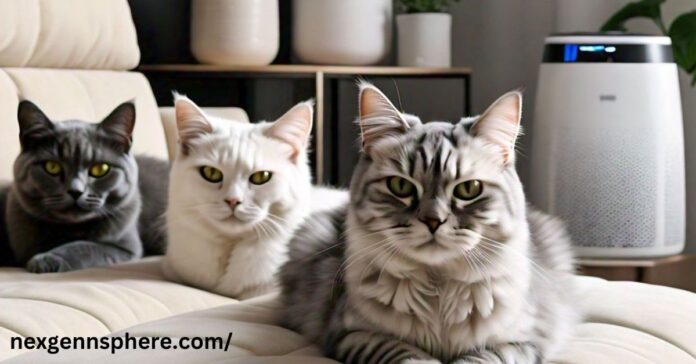Understanding Hypoallergenic Cats
What Are Hypoallergenic Cats?
Hypoallergenic cats are breeds known for producing fewer allergens compared to their non-hypoallergenic counterparts. While no cat breed is entirely allergen-free, hypoallergenic cats are less likely to trigger allergic reactions in sensitive individuals due to their reduced shedding and lower production of allergenic proteins.
Dispelling Common Misconceptions
There are several misconceptions surrounding hypoallergenic cats, such as the belief that they do not produce any allergens at all. In reality, hypoallergenic cats still produce allergens but in smaller quantities, making them a more suitable choice for individuals with allergies.
Exploring Allergy Triggers in Cats
Understanding the sources of cat allergies and how hypoallergenic cats differ in their allergen production.
Understanding Cat Allergies
Cat allergies are typically triggered by proteins found in a cat’s saliva, urine, and dander (tiny flecks of skin shed by cats). These proteins can become airborne and cause allergic reactions in susceptible individuals, ranging from mild sneezing and itching to more severe symptoms like asthma attacks.
How Hypoallergenic Cats Differ
Hypoallergenic cats possess genetic variations that result in reduced production of allergenic proteins. Factors such as the type of coat and the frequency of grooming play a significant role in determining a cat’s allergen production.
Top Hypoallergenic Cat Breeds
Introducing readers to some of the most popular hypoallergenic cat breeds renowned for their minimal allergen production.
1. Sphynx Cats
Sphynx cats are perhaps the most well-known hypoallergenic breed due to their unique hairless appearance. Without a fur coat to shed, Sphynx cats produce minimal dander, making them suitable for allergy sufferers.
2. Balinese Cats
Balinese cats, known for their long, silky coats, are often considered hypoallergenic due to their low shedding and minimal dander production. Their fine fur traps fewer allergens, reducing the likelihood of triggering allergies.
3. Siberian Cats
Despite their thick fur, Siberian cats are surprisingly hypoallergenic. They produce lower levels of the Fel d 1 protein, a common allergen found in cat saliva and dander, making them a popular choice for allergy-prone individuals.
Caring for Hypoallergenic Cats
Offering practical tips and advice for caring for hypoallergenic cats, ensuring their well-being and comfort.
Maintaining a Clean Environment
Regular cleaning is essential for reducing allergen levels in the home. Vacuuming carpets and upholstery, washing bedding frequently, and using air purifiers can help minimize allergen exposure for both the cat and its owner.
Regular Grooming Practices
While cats may produce fewer allergens, regular grooming is still necessary to keep their coat clean and reduce dander. Brushing your cat regularly can help remove loose fur and prevent the buildup of allergens.
Living with a Hypoallergenic Cats: Personal Experiences
Sharing anecdotes and stories from owners of allergenic cat, offering firsthand insights into the joys and challenges of living with these unique pets.
Testimonials from Hypoallergenic Cat Owners
Many allergy sufferers have found solace in owning hypoallergenic cats, enjoying the companionship of a feline friend without the fear of allergic reactions. These testimonials highlight the positive impact hypoallergenic cat can have on their owners’ lives.
Conclusion: Embracing the Allure of Hypoallergenic Cats
In conclusion, hypoallergenic cat offer a promising solution for individuals with cat allergies, allowing them to experience the joys of pet ownership without compromising their health. By understanding the unique qualities of hypoallergenic breeds and implementing proper care routines, allergic cat lovers can enjoy a fulfilling companionship with their feline friends.
Also read: Hairless Cat: A Unique and Lovable Pet
FAQs About Hypoallergenic Cats
- Are hypoallergenic cats completely allergen-free?
While hypoallergenic cat produce fewer allergens than other breeds, they are not entirely allergen-free. Individuals with severe allergies should spend time with the specific breed before bringing them home.
- Do hypoallergenic cats require special grooming?
Yes, hypoallergenic cat may require regular grooming to minimize allergen exposure. Brushing their coat and keeping their living environment clean can help reduce allergen levels.
- Can children with allergies safely live with hypoallergenic cats?
In some cases, hypoallergenic cat may be suitable for households with allergic children. However, it’s essential to consult with a healthcare professional before making a decision.
- Are there any downsides to owning a hypoallergenic cat?
While hypoallergenic cat offer relief for allergy sufferers, they may come with their own set of challenges, such as higher grooming needs or specific dietary requirements.
- Which hypoallergenic cat breed is the best choice for allergy sufferers?
The best hypoallergenic cat breed varies depending on individual preferences and lifestyle factors. Researching different breeds and spending time with them can help determine the most suitable companion.


